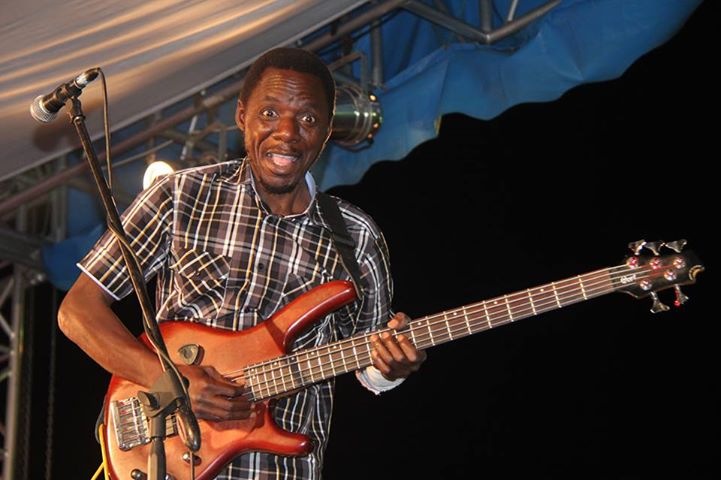By Vasco Chaya
Veteran artiste Shepherd Chinyani, known for perfecting Alick Macheso’s musical skills, is a bitter man.

Chinyani told the Daily News on Sunday in Harare recently that sungura music history was not being properly documented as it did not give credit to the actual pioneers of the genre.
“Considering the work I did in the development of sungura music in 1970s, I feel proud but what bleeds my heart is the fact that society tends to recognise artistes that came way after us as the pioneers of the genre,” the 59-year-old music guru said.
Chinyani worked with a number of successful local musicians back in the day and these include the late John Chibadura, Farai Brothers of Spero Baba (Skende) fame, Gakamoto Jumbo Stars, Ngwenya Brothers, Somandla Ndebele, R and K African Sounds, Alick Macheso, First Farai, Bothwell Butau, Ephraim Patai, Freddy “Kapfupi” Manjalima, Daniel Gonora, Tete Pipilo and Obvious Mutani among others.
“The only sungura artiste I respect in terms of seniority is Robson Kaitano of Green Mangoes Band who perfected my guitar-playing skills in 1970s, he also taught Nicholas Zakaria how to play the guitar,” he said.
“Now it’s painful to note that whenever there is a discussion about the origins of sungura, people hardly mention my name, giving credit to my juniors like Ephraim Joe.”
Born in Seke rural, Chinyani learnt acoustic guitar at a tender age.
“I joined Green Mangoes Band in 1976 as a sungura guitarist and most of the musical groups were specialising in other genres such as kanindo and Afro-fusion among others,” he said.
In 1978, Chinyani left the Green Mangoes to jointly form Holy Brothers together with Future Mukundwa.
“Back in the day, guitarists were hard to find as the industry was viewed as loafers’ job. We struggled to find a guitarist to strengthen the group until we travelled to Darwendale farms where we recruited (John) Chibadura who was a shepherd.
“I accommodated him in my core house in Dzivaresekwa, I taught him how to play the electric guitar and with his help we released the hit Huri Hwese naKatsande,” he said.
Mukundwa then temporarily left the group and we replaced him with Tineyi Chikupo who was coming from Maonera Superstars and owing to his popularity by then, he easily played the role of band leader.
“With Chikupo, we released the hit Nguva Dzekuma 4 before we split. I moved along with Chibadura and joined Sungura Boys led by drummer Ronnie Gatakata and by then Ephraim Joe was just a mere guitarist.
“When Mukundwa returned, I moved from the Sungura Boys to revive Holy Brothers leaving Chibadura behind.
“That was the time Nicholas Zakaria joined us as a bassist, we took him from the farms in Mazowe. We were also joined by Edius
Makore whose love for Jonah Moyo’s hit Solo naMutsai earned him the moniker ‘Solo’ Makore,” said Chinyani.
The revived group was rocked by splits, forcing Chinyani, Zakaria and Makore to form Vhuka Boys.
“Vhuka Boys was well received and we dropped hit after hit including Monica Sugar Mutapi, Shamwari Yangu Joe, Zindoga and Selina a song that was dedicated to my wife Selina as I was the lead vocalist and composer.
“Chikupo re-joined us again in 1983, together with dancer Maggie Gweshe who was coming from Kasongo Band,” said Chinyani.
In 1984, Chinyani fell sick and took a sabbatical from music.
“That was the time when the group was joined by Cephas Karushanga and Zakaria assumed the role of lead vocalist together with Gweshe, now his wife.
“When I recuperated, I was no longer interested in the music industry. I secured a job as security guard but my friend Serestino Dzawo who was related to Macheso encouraged me to pursue music as a career,” he said.
Instead of joining Vhuka Boys, Chinyani decided to assemble a parallel group under the same name in 1985.
“I was told of Macheso’s passion in music by Dzawo whom I later tasked to fetch him from Shamva farms.
“When he (Macheso) came, he did not stay with Dzawo for long, he complained of gross physical abuse from one of Dzawo’s two wives. At one time, he claimed to have been stabbed by her with a crochet on the arm over food.
“That was the time he came to me bleeding and I accommodated him in my house in Dzivaresekwa as I was the one who had facilitated his move from Shamva,” said Chinyani.
At Chinyani-led Vhuka Boys, Macheso was taught to play bass guitar “even though he loved rhythm guitar badly”.
“We held joint concerts around the country with the other Vhuka Boys led by Zakaria and that was the first time Macheso met Zakaria and Karushanga.
“Zakaria and Karushanga successfully lured Macheso from my group owing to his outstanding musical talent.
“After the tour, Macheso left a farewell note in the Dzivaresekwa house which partly read …kana zvikaoma ndichadzoka mukoma, ndaenda…and went on to stay with them (Zakaria and Karushanga) in Epworth and that was how Khiama Boys was formed,” he said.
The title “teacher” came after Chinyani helped struggling and upcoming groups then such as Ngwenya Brothers (Tedious, Jabulani and Mike Matsito) in polishing their debut albums.
“Their music was rejected by recording studios and I assisted them in polishing the songs and went on to record the first five albums from Nyaradzo with them as a drummer.
The group topped the charts and it caused sleepless nights to established musicians during those days,” he bragged.
He also helped a number of musical groups including Gakamoto Jumbo Stars from Jumbo Mine in Mazowe, Somandla Ndebele on the album Wakandidadira, R and K African Sounds on Dama Rakanaka as a bassist. Daily News






